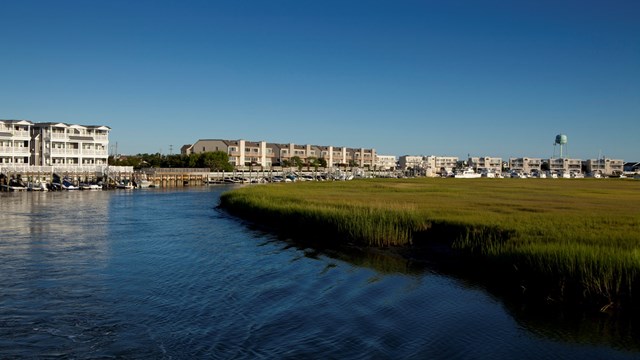When you're a homeowner living in an association environment, it's a good bet that at some point during your residence you are going to take issue with something that a neighbor is doing—or vice versa. Whether it be something small like playing music loud late at night, or something bigger like remodeling a major part of their house, you need to decide what battles to fight and what actually is breaking the association guidelines.
While most condominium boards and HOAs have stringent bylaws regulating what a homeowner can or cannot do on their property, some residents are unaware of (or unconcerned with) those rules, and conflict often arises when those people don't follow the codes. There can be rules set concerning parking, fences, horticulture or just about anything. This is when disputes arise, and where most experts agree that mediation and/or arbitration can help most to avoid possible litigation.
"When a dispute happens over some rule or prohibited activity, you should analyze why whatever it is isn't allowed," says David Byrne, an attorney with the law firm of Stark & Stark in Lawrenceville. "Is it because the master deed prohibits it—like if a guy wants to raise camels in his backyard, for example—or is it something that you think can't be done simply because it's never been done before? If that's the case, it may not be that big of a deal to allow it with some conditions." In situations like that, says Byrne, residents and board members should think outside the box in coming up with a solution.
"Think about what impact [changing or adapting a rule] would have on the community as a whole and talk about what can be done other than saying no," Byrne suggests. "Maybe the answer has to be no, but it's possible there are ways to change things without ruining everything else."
Problem Solving
When a dispute arises between two homeowners in New Jersey, before heading to court, there is a procedure that must be followed by law.
"In New Jersey, we have a requirement which says that you have to provide alternative dispute resolution in a case of housing related disputes," says Wendell Smith of Greenbaum, Rowe, Smith, Davis LLP of Woodbridge. "It lays out a fair and efficient procedure for the resolution of disputes between individual unit owners and the association, and between different unit owners that should be relatively available as an alternative to litigation. This applies across the board to co-ops, condominiums and home owners associations."
There is a similar provision in the state's Condo Act, which goes on a little bit further. "A person other than an officer of the association, a member of the governing board or a unit owner involved in a dispute shall be made available to resolve a dispute," Smith says. "The guidelines are a bit more expansive."
In this scenario, the two homeowners involved in the dispute would enter into a forum and attempt to solve their differences through some sort of neutral mediator with the hopes of coming to an understanding and agreement.
"Under current New Jersey law, you have an obligation to provide some sort of mechanism for alternative dispute resolution," says Byrne. "So if you get two homeowners that are arguing over something—One guy says he's too loud at night, the other says he's too loud in the morning—the association doesn't have a dog in that fight, so to speak. The association is a corporate entity, and doesn't necessary care if the person is loud or not. But legally in New Jersey, there is the alternative dispute resolution—or ADR—obligation."
ADR is a means of trying to resolve a dispute without a lawsuit.
"In a lawsuit, someone has to win and someone has to lose," Byrne continues. "This is why people love mediation. A lawsuit can be devastating in a community where people have to live together. I think that's why this ADR concept has become so important in the residential community context. You need to resolve disputes short of litigation because suing each other is not an appropriate way to structure your community."
Staying Neutral
Mediation is the most common form of ADR. During an ADR session, a neutral person usually brings disputing people together and attempts to identify common themes and get the parties to make agreements from there. In disputes over money, mediation works best because such arguments are generally purely about the bottom line, and upset as they are, the feuding parties don't want to wind up paying more for lawyers and court costs than was at issue in the first place.
"It's important to bring people together and see if they will agree among themselves to do something," Byrne says. "Sometimes it works, and sometimes it doesn't."
When it comes to choosing a mediator, clearly it's best to use someone that both parties agree on. While an association can certainly arrange to provide mediation for arguing shareholders or members, the board should be cautious when appointing the manager or someone on the board to serve as the neutral party - while it's certainly cheaper and more convenient than hiring outside help, therein lies the potential for conflict of interest, and possible problems later on.
According to Smith, "There are mediation services out there that can cost a lot, or you can hire a lawyer and pay by the hour, but many of the mediations are done with volunteers. Interestingly, there are a lot of people from retirement communities who enjoy doing it. If your board maintains an in-house ADR committee, mediation services won't cost anything."
In New Jersey, when you're a condominium, all mediation costs are common expenses, which means the association has to pay them. That's why they often look in-house, or call for volunteers.
Matt Shapiro, who serves on the board of the Linwood Park condo association in Fort Lee sees nothing wrong with offering his service as a mediator to two feuding parties.
"If I get a dispute between two shareholders, I do what I can to help mediate the dispute and if they accept my services, I do what I can," he says. "But whether it's me, a manager, an employee of the co-op or a government official, arguments need to be mediated before they're litigated."
The Next Step
Byrne says there can be some drawbacks to mediation. "If one or some of the parties aren't doing it in good faith, or it's a delay tactic, or it's used to get information in a way and at a time you might otherwise have gotten it," he says. "It could be a way to increase the other guy's costs. If you go into full-blown mediation on a dispute and one of the parties is small, going into a three- or four-month process and paying mediator hourly rate, you can spend a decent amount of money. If the other guys are not doing it in good faith and decide at the last minute they don't want to settle, then you're [in trouble]."
When the association gets two parties together under mediation, it satisfies the requirements under law. But even if the mediation fails, the ideal is to keep it out of the courts if you can and there are several ways to accomplish that—even after mediation has failed to work in avoiding a trip to court.
"What we most commonly try to do," says Smith, "is go beyond that and say if mediation doesn't work, and they still can't agree, it's really only the first step. The [separate parties] can then go to what's called non-binding arbitration, where you have a neutral third party actually making a decision [in favor of one party] but it's still not binding for either party. It gives them an idea on what side a court might come out on. Then, if the parties agree and don't appeal the arbitrator's decision within 45 days, the decision becomes binding. If they don't agree, either party would have the right to go to court or to more binding arbitration."
The Truck Stops Here
The number of cases that do end up in court in New Jersey are minimized by the ADR process, but that still doesn't mean it works for everyone. Byrne recently had an HOA-related case where mediation and arbitration both failed and the dispute ended up in litigation.
"I had a client in South Jersey who was a condo unit owner and had a commercial vehicle with ladder racks and pipes parked in his drive," Byrne recalls "Commercial vehicles happened to be prohibited in that community without board approval, and this client's board never gave him approval. He of course refused to go along with that. We did an arbitration with a committee to decide how to handle it, and the board decided that the man had to comply with the association's no-commercial-vehicles rule - but they offered to waive all the fines he'd accrued as long as he did. But he still didn't comply, and it got kind of nasty. If the owner would have just taken the deal, that would have been a successful outcome but he went to court—and he lost."
Stories like that one just go to show that when it comes to living harmoniously in your HOA community, it's not always about winning at any cost. Lawsuits and litigation are poisonous elements in any community, but doubly damaging in the small, often insular world of condo associations. Sometimes the best thing for you and your community is to compromise and work things out peacefully—and ADR is a great way to do just that.
Keith Loria is a freelance writer and a frequent contributor to The New Jersey Cooperator.







Leave a Comment